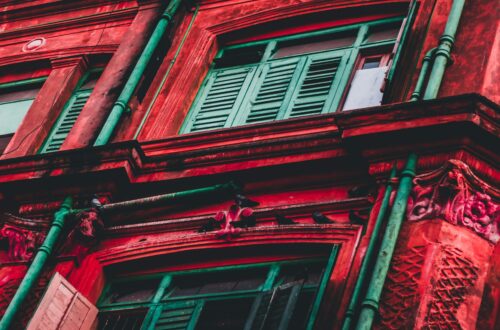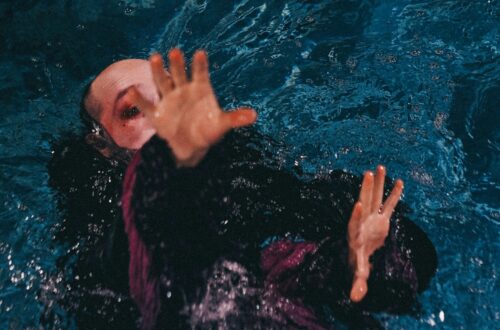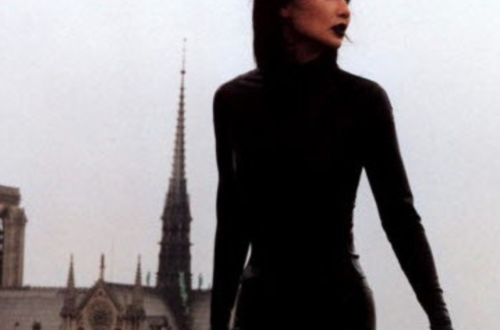Rachel Kitch
Trigger Warning: Eating Disorders
On May 12, 2024, I glided onto a terrace in the Amalfi Coast, Italy, soaked in the scent of jasmine flowers, fresh lemons, and the sea, and married the love of my life.
After almost three years of planning, I wasn’t sure it could live up to the images that had always played in my head. But—it did.
We had a picture-perfect backdrop, overlooking the mountains and the sea, for our intimate ceremony. I read my vows in a quivering voice, fought back tears as my husband read his own. We laughed when his wedding band required brute force to get it on his finger.
A beautiful, joyous day.
Only one thing was slightly off, and that was the bride.
My dress—a custom Anne Barge—was slightly too big. The straps couldn’t stay up; my chest no longer quite filled out the cups. A disappointment, after an almost $1000 tailoring expense the month earlier.
Every time I fussed with my dress, fixed it for every picture, I kept checking to see if my collarbones protruded. That the ripples of my sternum were visible. I would press my fingers against the bones that constructed my shoulder, fix the pleating of my dress to keep my stomach hidden.
Because even as I admired the way I looked, after the thousands of dollars I had spent in hopes of bringing myself to a pinnacle of loveliness, part of me was fucking terrified.
Most brides have a story with their wedding dress. Perhaps their story started the moment they slipped it on and they knew it was the one; maybe the moment they got engaged, they had their dress in mind.
I, too, have a story with my wedding dress.
But honestly, I’m still not sure if it has a happy ending.
***
I met my now-husband, Jake, in the summer of 2013.
In a story straight out of a romance novel, he was my best friend’s older brother. I walked into her house one day to find out that there was another sibling, home for the week on leave.
A new friendship turned into a built-in date for sorority formals then turned into the love of my life.
We weathered highs and lows, checkpoints on the winding trail of our relationship, and went through it all hand-in-hand.
Then 2020 hit.
I moved to Philly for grad school; Jake remained in DC. For the first time in years, I was completely alone: nobody to see what I was or wasn’t eating, nobody to share a meal with.
And like so, so many others during the pandemic, I relapsed into my eating disorder.
The funny thing (it’s not actually funny) about having an eating disorder is when, to the layperson, you don’t look like you have an eating disorder, you never get more compliments in your life.
They ask you what you’re doing. They ask about your workout regimen.
You smile and say you’re just eating right. You lie through your teeth when people ask why your eyes are puffy, you say it’s just allergies, not that you watched Captain America and the Winter Soldier and sobbed because you’re too big and unwieldy for Bucky Barnes to ever scoop you up into his cybernetic arms. Because you can’t say the truth out loud to people you know, that you haven’t had a bite of solid food in three days and you’re fucking exhausted. That you ate a single Eggo waffle with a little bit of Nutella and it tasted so fucking good that you just wanted more but you couldn’t have it but you wanted it so badly that you took a bite then you had to punch yourself in the jaw as both punishment and deterrent and it left the shadow of a bruise that made you lie once again the next day.
Jake didn’t see this; I didn’t let him see it. I pulled myself together just enough during his visits, but he still knew something was wrong.
I tried to get better; I tried for him.
When he proposed in 2021, I had just turned the corner in my recovery, and both of us were finally breathing easier.
But then I went to my first wedding dress appointment. Then another. And another.
Diligent friends seized my phone, shrieking in delight, to capture every single angle in every single dress. My camera roll was stuffed with pictures of me smiling and laughing, swishing white taffeta in bridal mirrors.
But when I looked at the pictures later, I wasn’t thinking about the dresses themselves.
Instead, I zoomed in on my face in every photo. Analyzed the slant of my jaw, the apples of my large cheeks. I fixated on the minute ripple of white where I thought I could see my stomach through the dress.
Eventually, I found the dress at a stilted, uncomfortable appointment with my mother. The bridal consultant had to chastise her more than once, reminding her to be nice; when I paid for the dress, my mother sat on a couch at the back of the store and played Candy Crush, while they packed up my celebratory champagne to-go.
I was eager to get away, to put the experience behind me. But then my mother, whose lips had pursed in displeasure at the size I ordered my dress in, said the phrase that would haunt me for the next three years.
You better not gain weight before the wedding so the dress will still fit.
***
During therapy, I used to try to explain my thoughts as happening between my “logical brain” and my “fish brain.” The fish brain was that flailing, panicked, primal part of myself that defied logic or reason.
Example:
Logical brain: You need food to survive. Humans need to eat in order to live.
Fish brain: Not me tho bitch!!!!!!!!!!!
With time and practice, I eventually got the fish brain to stop flopping around so much. I threw it back in the water, or put it on ice, or some better metaphor that says the fish is shutting the fuck up now, thanks.
But eating disorder recovery is hard. There’s no medication to prescribe, no twelve-step detox program to go through. Therapists have to rely on their tools of the trade, the slow untangling of our minds to retrain our brains, to teach us how to muffle that voice in the back of our minds that has the caloric information of an apple, a banana, a FiberOne brownie memorized cold.
In recent years, there’s been a shift in eating disorder treatment methods: instead of approaching it like anxiety or depression, it’s like treating a substance abuse problem. At its core, it makes sense.
Anorexia is that high we chase, binging the balm that soothes, bulimia the release we crave.
But — there’s a key difference in eating disorders and substance abuse.
You can’t quit eating cold-turkey. Every meal, three times a day, means the possibility of a relapse.
Every meal, every bite I took, I wrestled with that ever-flopping fish, begging and pleading for it to settle down. But the minute I swiped my credit card at the bridal salon, I gave the fish brain a unique and all-powerful bullet:
You’re not going to fit into your wedding dress.
Somehow, trying to remain the exact same weight was a scarier endeavor than simply trying to shrink. A tightrope to balance, a needle to thread. A tiny bullseye to hit, with only an inch or two of grace in either direction.
But in the fall of 2022—six months before the wedding—Jake and I both ended up jobless. Suddenly, I had a lot worse things to worry about than a wedding (health insurance, student loans, the really fun stuff) and we made a call.
We postponed the wedding by a year. And I could breathe for the first time since I got engaged.
I moved the wedding dress to a never-used closet; out of sight, out of mind. It got easier to quiet the fish brain. Eventually, it stopped thrashing.
For a while, there was blissful quiet in my brain. I basked in it, relished my new ability to eat a full meal, but in the back of my mind—I wondered how long it could last.
***
As fate would have it, my recovery lasted for almost exactly a year. A full year of throwing myself into my new job, enjoying dinners out with old friends, weekends full of rest and relaxation. I wrote an entire book, because as it turns out, I had so much more free time when I wasn’t obsessing over every bite of food.
But one Tuesday morning, the first crack appeared.
I woke up to an email from our wedding planner. It was six months to the new wedding date, and we had a lot of decisions to make again.
My heart stopped. And the fish brain slapped my mom’s voice to the front of my mind.
You better not gain weight before the wedding.
I pulled out the pictures I hadn’t looked at in so long, the beaming photos of me in my future dress, my mother’s scowling face sequestered in the corner.
And I knew that I had changed since then.
I cataloged every difference: the new fullness of my cheeks, the breadth of my hips, the roundness of my arms.
Looking at those pictures, I forgot everything I went through to look like that.
Because—I’ve never looked like I had an eating disorder. At least, the image of an eating disorder that’s drilled into our heads.
There’s a movie on Netflix called To the Bone, starring a doe-eyed Lily Collins and an emotionally available Keanu Reeves. It follows a young woman, Ellen (Collins), through her battle with anorexia while in a specialized inpatient facility.
It’s filled with images of what I thought I had to be in order to be “sick.” Rail-thin young women, complete with knobbly knees and spider-webbed veins under translucent skin. The sound of vomiting, mouths full of decaying teeth. Mealtimes filled with tears and tantrums and grief.
I didn’t look like that. Didn’t sound like that. Didn’t cry like that.
My fish brain held up those fun little facts to prove that my relapse wasn’t bad. That I had been fine, actually. I never passed out in public. I wasn’t concerningly-thin, with sunken eyes and hollow cheeks. No doctor ever pulled me aside to tell me my life was in jeopardy. Nobody could have guessed—nobody ever did guess—that I wasn’t eating.
Keanu Reeves never needed to hold my hands and tell me I was going to die if I didn’t change my ways.
Therefore, the fish brain took a look at my wedding dress, the wedding planner’s email—and every memory of my relapse dissolved into smoke.
I didn’t remember sobbing every night. I didn’t remember my therapist telling me to consider inpatient. I didn’t remember stopping therapy because I couldn’t afford inpatient, and she wasn’t going to help me otherwise.
I didn’t remember how exhausting it was to have one half of my brain saying more more more and the other half saying stop stop stop and then some secret third half saying what’s the point anyway none of this ever works and they’re all screaming, trying to be the loudest.
All I thought, when I looked at those old pictures of me, was I looked good.
As I looked at my wedding dress, nestled in that garment bag hanging in my closet, I broke out into a full sweat, because I had no idea if it still fit. My fish brain sprang into action, beating and berating me, old habits resurfacing like a natural high tide.
It made me realize: I hadn’t escaped my eating disorder.
I only paused.
And so, with six months to go before my wedding, I began again.
***
The cynical part of me thinks how terribly cliche it is, how shallow I am to have my wedding be what brought my recovery crumbling down.
But then I’m reminded of the crash diets geared towards brides. Spas offering three month skincare packages, so you can look your best on your big day. The fact that the biggest purchases in my life have been a new car, my wedding dress, and our wedding photographer.
I didn’t know how to bring my dress on a plane, so I turned to TikTok. Instead, I learned that some brides did a series of lymphatic massages before their wedding to wring the excess water out of their bodies, and my fish brain gleefully marked down another fear.
Every meal I skipped, every bite of food I pushed around on my plate, someone smiled and nodded. Wedding diet, huh? Coworkers didn’t pass me treats, because I was getting married soon, and of course I wouldn’t risk a brownie this close to my big day.
The only grace I could give myself: I had a time limit. I would be sick until the wedding, then I would get better. I could do whatever I wanted after the wedding; I would be fine.
I let these lies comfort me, because it made what I was doing OK. I had a reason, and it seemed like everyone in my life was on board with my plans.
My parents had never been prouder.
With a couple months to go before the wedding, my parents insisted on taking me to dinner. A catch-up, an opportunity to have our quarterly “talks”, where we chat about my job and 401(k)s and nothing that contains an ounce of emotion. They wouldn’t be attending my wedding, and they didn’t bring it up.
I picked at my meal. Claimed I wasn’t hungry. Lied and said I was trying out a new diet.
As I handed my mostly-full plate back to the waiter, my mother nodded in approval.
Keep up the good work, she said.
***
A lot of brides have regrets about their wedding day. That they spent more time talking to family, that they had spent less money on the decor and put it towards the open bar, that their grandparents were still alive to see the day.
My biggest regret is that every facet of my wedding has been tainted by my eating disorder.
The photographs we captured—I know I’ll look at them, years from now, and want to look like this again, no matter the cost.
We spent our honeymoon roaming the Amalfi Coast, exploring Naples. For months, I had dreamed of lemons, of fresh pasta and seafood, and yet—
The first day we arrived, I threw up on the sandy beach because my body rebelled at the pizza I ate. I never had the chance to try freshly-made limoncello, because my stomach can’t tolerate alcohol.
I’ll remember the sentieri di limone and the view from our villa and the nonna yelling “auguri!” out of her window as we walked through the Maiori town center in our wedding regalia, but I’ll also remember our wedding planner saying I won’t have to worry about what I eat that week because we’ll climb so many stairs. I’ll remember the waitstaff at our wedding dinner, hovering with concern over my unfinished plates, wringing their hands and saying they could bring something else if I didn’t like it. I’ll remember the man in the window seat on our flight home, apologizing for existing as a larger person, saying he hadn’t gone on his diet yet.
Hundreds of thousands of little cuts. Over, and over, and over again.
I’ll be reminded of every single one when I look at my wedding pictures; when I visit my parents and see the framed photos dotting their home; when I open Instagram and see my most-liked post.
Months later, I’m still slogging through in an exhausted haze.
A weak cosplay of “recovery”, of pretending that I’m fine when I know I’m really not. Of wanting and hoping to truly get better, but loathing to give up what I’ve earned with blood and tears. Craving thinness, at whatever cost, because somehow that would fix me.
My mind is a rubber band stretched past its breaking point; it’ll never snapback, only break from here. There’s only thin barriers keeping me from regressing, a thin sheet of ice that the fish brain is dying to burst through, the world’s shittiest glass ceiling.
Because I still think of ways I can mutilate myself, to whittle away my body for the pleasure of someone else’s consumption. Part of me files away bits and pieces of information, begging to be used the minute I let that ice shatter. The telehealth companies that don’t require photo proof of your weight, so I can be prescribed Ozempic. Requirements for bariatric surgery, where I can go that will take me on. The cost of the latest, non-invasive liposuction, how I could hide the recovery time from my husband. Part of me considers that maybe if I make it permanent, I’ll never have to do this again.
Some days I’m fine. Some days I’m not.
It’s a modern day purgatory: half in, half out, doomed never to reach either. I have to wonder if this is my past, my present, my never ending future.
But the chain shackled to my ankles, clinking and clanking, the sound that wakes the slumbering fish brain up is the knowledge that when I look back on the happiest day of my life, all I will see is my eating disorder.
And unfortunately, my wedding was unforgettable.




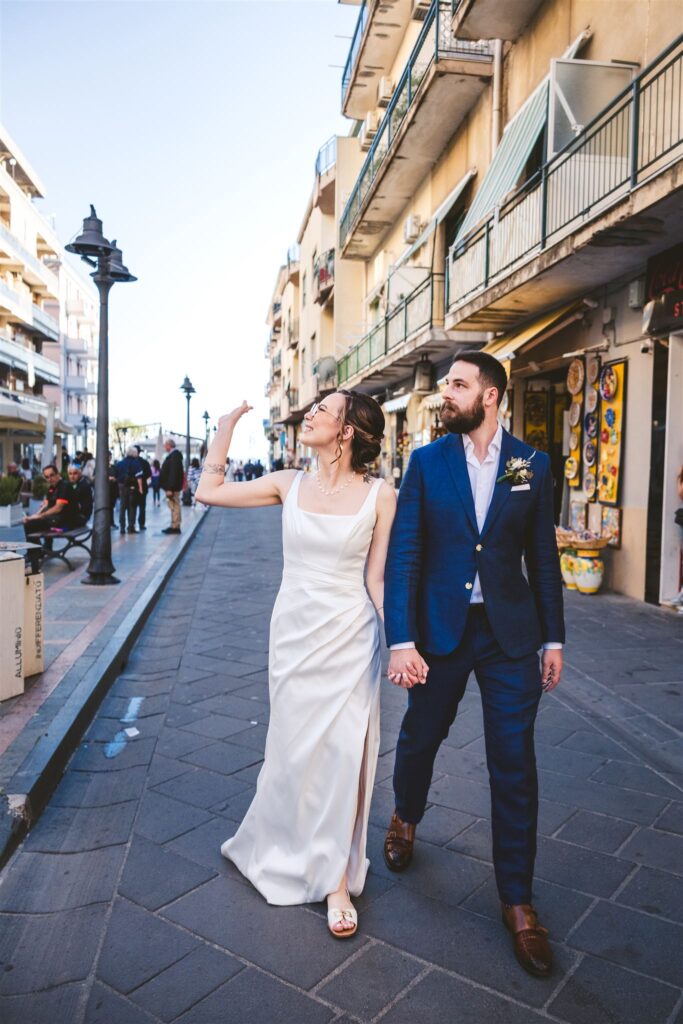
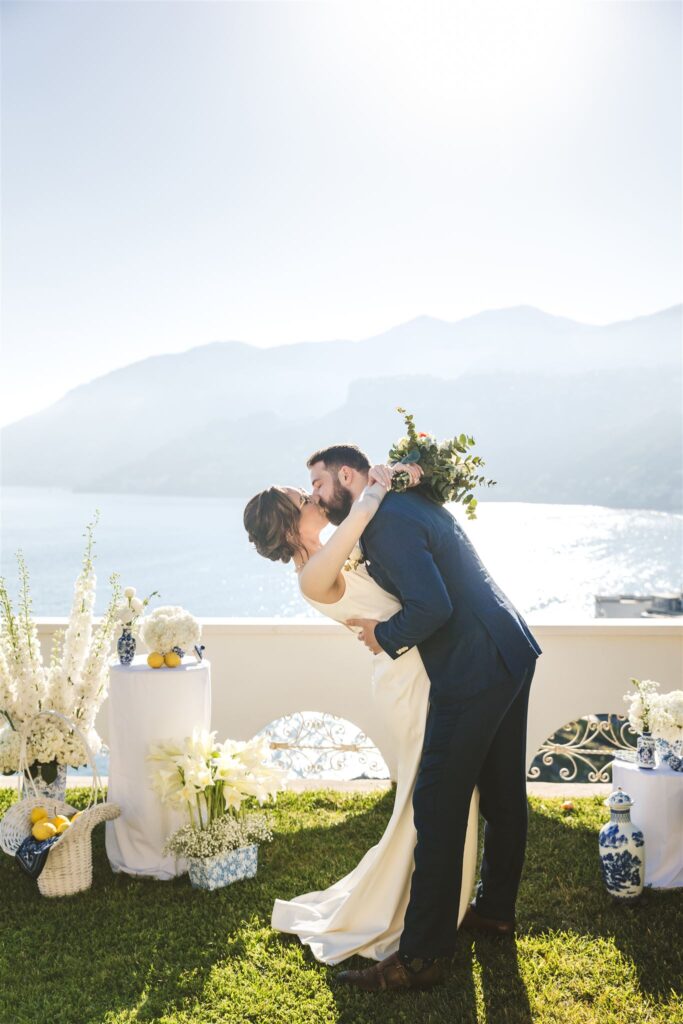
Photos by Rachel Kitch

Rachel Kitch is a speculative novelist based in Washington, DC. Her poetry, short fiction, and essays can be found in online publications such as Prismatica, Crow Crosskeys, and The Humanist. She has her Masters from the University of Pennsylvania, and completed her thesis on the intersection of body image and eating disorder recovery. Find her at www.rachelkitchauthor.com. X: @rachelkitch



